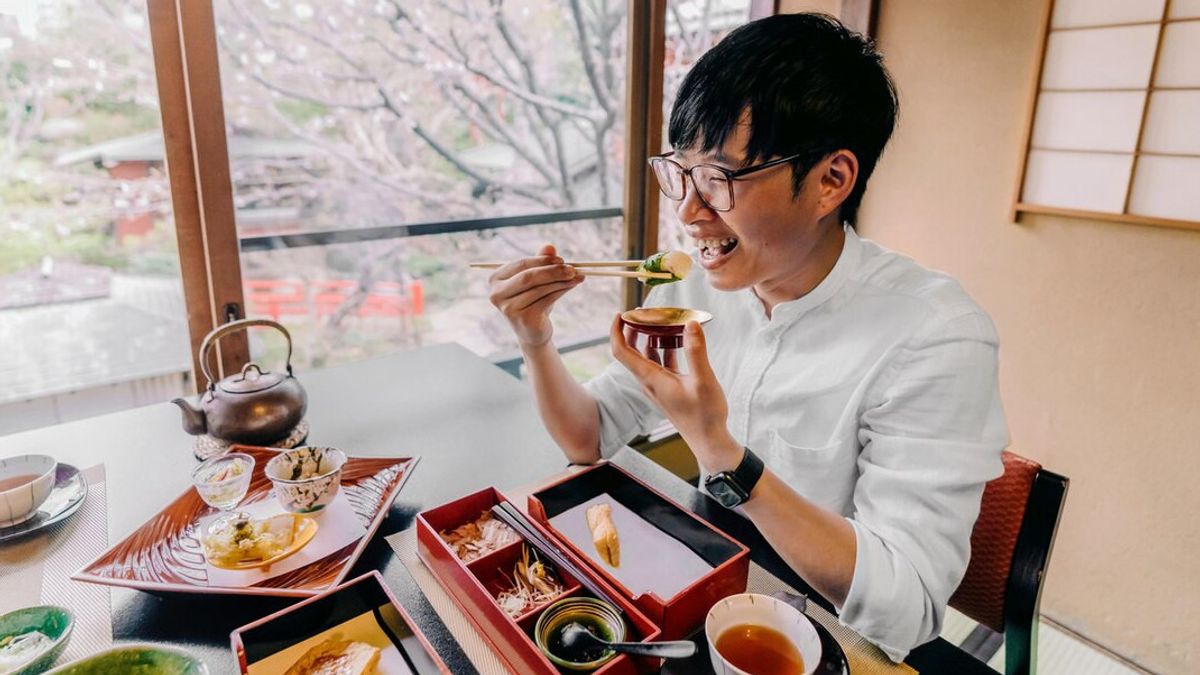JAKARTA - Japan is known as one of the countries with the highest life expectancy in the world. Japan is the country with the longest-lived human population in the world.
One of the secrets is a healthy diet rich in nutrients and antioxidants. Since childhood, Japanese citizens were taught to choose foods that were not only delicious, but also healthy.
Here are 5 foods that are often consumed by Japanese citizens every day to stay healthy and have a long life, as reported by VOI from the CNBC Make It page on Friday, January 31.
Purple ubi from Okinawa, known as imo in Japanese, is often consumed as a snack or dessert. Sweet potatoes are rich in healthy carbohydrates and anthocyanins, a type of antioxidants found in red and purple vegetables, have anti-aging properties. Several studies have also shown purple sweet potatoes can help control blood sugar levels and reduce the risk of cardiovascular disease.
Fermented foods are an important part of Japan's diet, and one of the most popular is miso soup. Miso itself is a pasta made of soybean fermented and grains.
Fermented foods contain probiotics, namely live bacteria or yeast that help maintain digestive health and improve the immune system. A study found men and women who regularly consume fermented soybeans, such as miso, tofu, and tempeh, have a 10% lower risk of early death than they rarely consume.
Root vegetables such as daikon tender are very common in Japanese cuisine and have many health benefits. This cart is known to help prevent the flu and improve the immune system.
One daikon mosquito contains 124% of the daily needs of vitamin C, which is very important to maintain endurance. If it is difficult to find daikon? You can replace it with carrots, seeds, parsers, or other mosquitoes that are easier to find in the local market.
Seaweeds rich in essential minerals such as iron, calcium, folate, and magnesium. Daily consumption of seaweed also helps increase fiber intake, which plays a role in reducing the risk of heart disease, stroke, hypertension, and type 2 diabetes. In addition, seaweed contains antioxidants such as fucoxanthin and fucoidan, which have anti-inflammatory, anti-aging, and even anti-cancer properties.
SEE ALSO:
Entering protein in daily foods, especially fatty fish such as salmon and tuna. The omega-3 content in fish is proven to help lower blood pressure, reduce triglyceride levels, and overcome inflammation.
Before eating, Japanese citizens often say "itadakimasu," which means "I accept it with humility," as a form of gratitude to nature and farmers. They believe that this conscious eating habit also contributes to health and quality of life.
The English, Chinese, Japanese, Arabic, and French versions are automatically generated by the AI. So there may still be inaccuracies in translating, please always see Indonesian as our main language. (system supported by DigitalSiber.id)


















